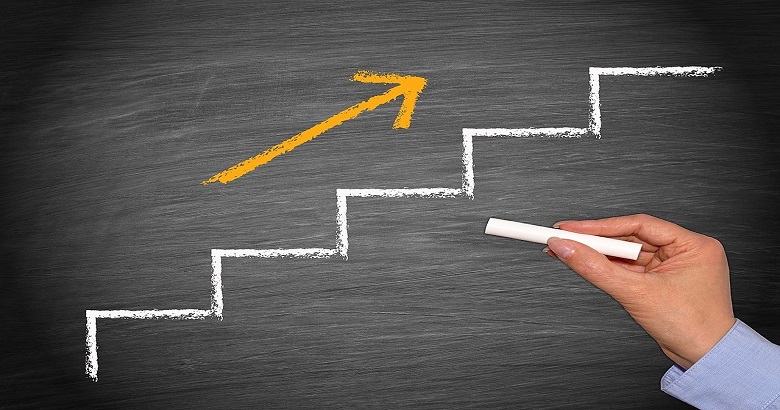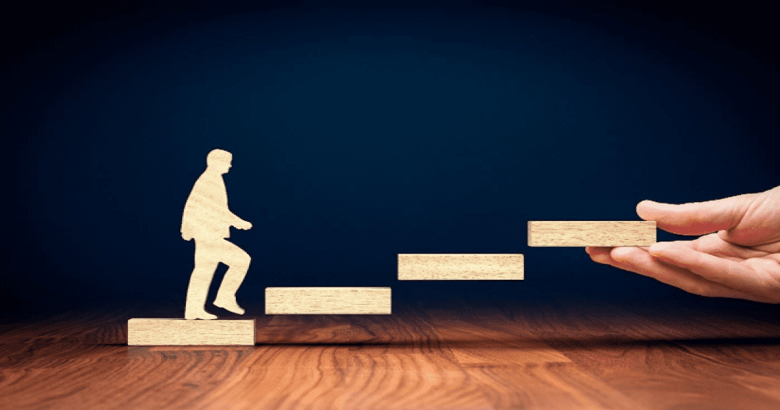
Self-accountability is a critical component of personal and professional growth. It refers to the ability to take responsibility for your actions, decisions, and overall behavior. Developing self-accountability leads to increased self-awareness, improved decision-making, and greater success in life. But becoming accountable to yourself isn’t always easy—it requires intentional effort, reflection, and discipline.
In this blog, we’ll explore what self-accountability means, why it’s important, and how you can develop it. By the end of this guide, you’ll have actionable steps to start your journey toward a more responsible and fulfilling life.
What is Self-Accountability?
Self-accountability is the practice of taking ownership of your actions, thoughts, and decisions. It means recognizing the role you play in your own life and accepting the outcomes—both good and bad—of the choices you make. When you’re accountable to yourself, you’re not making excuses or blaming others for your shortcomings. Instead, you face challenges head-on and work toward better solutions.
At its core, self-accountability is about being honest with yourself. It requires self-reflection, a willingness to acknowledge mistakes, and the determination to improve. It’s a crucial trait for anyone looking to achieve personal growth, build resilience, and create lasting success in any aspect of life.
Why is Self-Accountability Important?
Self-accountability is fundamental to personal development because it empowers you to take control of your life. Without it, you’re more likely to fall into a pattern of blaming others, avoiding responsibility, and failing to reach your potential.
Here are several key reasons why self-accountability is important:
- Improved Decision-Making: When you hold yourself accountable, you’re more likely to consider the consequences of your actions before making decisions. This leads to better choices that align with your goals and values.
- Enhanced Self-Discipline: Accountability fosters self-discipline, which is essential for achieving long-term success. It helps you stay focused on your goals, even when faced with challenges or distractions.
- Increased Trustworthiness: Being accountable builds trust with others. People are more likely to respect and rely on you when they know you take responsibility for your actions and follow through on commitments.
- Greater Personal Growth: Self-accountability requires self-reflection, which promotes personal growth. By regularly assessing your actions and learning from mistakes, you become a more self-aware and resilient individual.
- Reduced Stress and Anxiety: Taking ownership of your decisions reduces the feeling of helplessness that often comes from blaming external factors. With self-accountability, you understand that you have the power to change your circumstances, which can alleviate stress and anxiety.
How to Develop Self-Accountability: 10 Practical Steps

Developing self-accountability is a gradual process that requires consistent effort. Below are 10 practical steps to help you build and strengthen this essential trait.
1. Set Clear Goals
To hold yourself accountable, you need to know what you’re working toward. Clear, specific goals provide direction and motivation. Without them, it’s easy to drift and lose focus.
Action Step: Write down your goals, both short-term and long-term. Make them specific, measurable, attainable, relevant, and time-bound (SMART). Review them regularly to track your progress.
2. Break Goals into Manageable Tasks
Big goals can feel overwhelming, leading to procrastination. Break down larger goals into smaller, more manageable tasks. This makes it easier to stay on track and hold yourself accountable for completing each step.
Action Step: Break each goal into smaller tasks with specific deadlines. Create a timeline or checklist to monitor your progress.
3. Establish Personal Accountability Systems
It’s easy to let yourself off the hook when you don’t have anyone to answer to. Creating personal accountability systems can help you stay on track. This might include using tools like planners, apps, or journals to document your progress and hold yourself accountable.
Action Step: Choose an accountability system that works for you, whether it’s a daily planner, a habit-tracking app, or a journal. Make a habit of reviewing your progress regularly.
4. Practice Self-Reflection
Self-accountability requires regular self-reflection. You need to assess your behavior, decisions, and outcomes to determine whether you’re staying true to your goals and values. This reflection helps you identify areas for improvement and celebrate your successes.
Action Step: Set aside time each week for self-reflection. Ask yourself questions like, “What did I accomplish this week? What could I have done better?” Use this reflection to make adjustments moving forward.
5. Take Responsibility for Your Actions
One of the key elements of self-accountability is owning up to your mistakes and shortcomings. When things don’t go as planned, resist the temptation to blame others or external circumstances. Instead, take responsibility and figure out what you can do differently in the future.
Action Step: When something goes wrong, pause and reflect on your role in the outcome. Ask yourself, “What could I have done differently?” Focus on finding solutions rather than placing blame.
6. Learn from Your Mistakes
Mistakes are inevitable, but they can be valuable learning opportunities. Instead of dwelling on your failures, use them as a chance to grow. Reflect on what went wrong, why it happened, and how you can prevent similar mistakes in the future.
Action Step: After making a mistake, write down what you learned from the experience. Use this information to adjust your approach moving forward.
7. Create Accountability Partnerships
While self-accountability is about being responsible for yourself, having an accountability partner can provide extra motivation. An accountability partner can offer support, encouragement, and constructive feedback, helping you stay on track.
Action Step: Find a trusted friend, colleague, or mentor who can serve as your accountability partner. Set regular check-ins to discuss your progress and challenges.
8. Avoid Excuses
Excuses are the enemy of self-accountability. When you make excuses, you’re essentially avoiding responsibility for your actions. Instead, focus on finding solutions and taking action, even in difficult circumstances.
Action Step: Challenge yourself to stop making excuses. When you catch yourself starting to make an excuse, pause and ask yourself, “How can I take responsibility for this situation?”
9. Celebrate Small Wins
Developing self-accountability can be a challenging process, so it’s important to celebrate your progress along the way. Acknowledging your small wins can keep you motivated and reinforce the habit of accountability.
Action Step: Each time you achieve a goal or complete a task, take a moment to celebrate. Reward yourself in small ways, like taking a break or treating yourself to something you enjoy.
10. Stay Consistent and Patient
Building self-accountability doesn’t happen overnight. It requires consistent effort and patience. Be kind to yourself during this process and recognize that progress may be slow at times.
Action Step: Commit to practicing self-accountability daily, even when it feels difficult. Remind yourself that every small step contributes to your overall growth.
Overcoming Common Obstacles to Self-Accountability
Developing self-accountability comes with its own set of challenges. Here are some common obstacles and strategies to overcome them.
1. Procrastination
Procrastination is a major roadblock to self-accountability. It prevents you from taking action and achieving your goals. To combat procrastination, break tasks into smaller steps, create deadlines, and hold yourself accountable for completing them.
2. Fear of Failure
Fear of failure can make it difficult to take responsibility for your actions. It’s important to recognize that failure is a natural part of the learning process. Instead of avoiding accountability out of fear, embrace it as an opportunity for growth.
3. Lack of Motivation
Staying motivated can be difficult, especially when the tasks ahead seem daunting. To maintain motivation, focus on the reasons why your goals are important to you. Keep your long-term vision in mind, and remind yourself of the benefits of self-accountability.
4. Perfectionism
Perfectionism can lead to a fear of making mistakes, which may prevent you from taking action. It’s important to understand that perfection isn’t attainable and that progress is more important than perfection. Allow yourself to make mistakes and learn from them.
The Role of Accountability in Personal Growth

Self-accountability plays a critical role in personal growth. It helps you become more self-aware, resilient, and responsible for your own success. When you’re accountable to yourself, you’re better equipped to handle challenges, set meaningful goals, and make progress in all areas of life.
Here are some ways self-accountability contributes to personal growth:
- Self-awareness: Holding yourself accountable requires self-reflection, which helps you become more aware of your strengths, weaknesses, and behaviors.
- Resilience: When you take responsibility for your actions, you become more resilient in the face of setbacks. You learn to adapt, overcome challenges, and keep moving forward.
- Goal Achievement: Accountability helps you stay focused on your goals and follow through on your commitments, leading to greater success in both personal and professional pursuits.
- Confidence: As you practice self-accountability and achieve your goals, your confidence grows. You start to trust yourself more, knowing that you have the ability to take charge of your life and make positive changes.
How Self-Accountability Impacts Relationships
Self-accountability doesn’t just benefit your personal growth—it also has a profound impact on your relationships with others. When you’re accountable to yourself, you’re more likely to build healthy, trusting relationships with those around you.
Here’s how self-accountability improves relationships:
- Trust: When you take responsibility for your actions, people are more likely to trust you. They know they can rely on you to follow through on your commitments.
- Communication: Self-accountability promotes open and honest communication. When you’re willing to admit your mistakes and take ownership of your actions, it encourages others to do the same.
- Conflict Resolution: Accountability helps you resolve conflicts in a constructive manner. Instead of blaming others or deflecting responsibility, you focus on finding solutions and moving forward.
- Respect: Being accountable to yourself earns the respect of others. People appreciate those who take ownership of their actions and demonstrate responsibility.
Wrapping Up
Developing self-accountability is a powerful way to take control of your life and achieve personal and professional success. By setting clear goals, reflecting on your actions, and taking responsibility for your decisions, you can cultivate a mindset of accountability that leads to personal growth, resilience, and stronger relationships.
Remember, self-accountability is a journey that requires consistent effort and patience. Start by taking small steps today, and over time, you’ll build the habits and mindset needed to hold yourself accountable and create the life you desire.
Frequently Asked Questions
1. How can self-accountability influence long-term success?
Self-accountability is a foundational element of long-term success because it encourages ownership over actions and decisions. By holding yourself accountable, you become more disciplined and focused on setting and achieving your goals. It allows you to take proactive steps to correct mistakes, optimize strategies, and continuously improve.
Instead of deflecting blame when things go wrong, self-accountability teaches you to critically assess your role in outcomes. This reflection ensures that failures serve as lessons rather than setbacks, fostering resilience. Over time, this ability to evaluate and course-correct enhances both personal and professional growth, leading to sustained success. It also builds your reputation, as others trust you to deliver results and stand by your commitments.
2. How can I stop making excuses and take responsibility for my actions?
Breaking the habit of making excuses requires both self-awareness and a commitment to change. Begin by recognizing when you’re making an excuse—this might involve justifying a failure or blaming external circumstances. Once you’re aware, ask yourself honest questions like, “What could I have done differently?” or “How can I make this situation better moving forward?”
It’s also helpful to focus on solutions instead of problems. When you face an obstacle, train yourself to think, “What can I do to solve this?” instead of listing reasons why it happened. Over time, this shift in mindset reduces the inclination to make excuses. It’s important to note that self-accountability isn’t about being harsh on yourself; it’s about learning to own your decisions while being proactive in your responses.
3. Can self-accountability improve leadership abilities?
Yes, self-accountability significantly enhances leadership abilities. Effective leaders model the behavior they want to see in others, and self-accountability is key to setting that example. When leaders take responsibility for their decisions—whether in success or failure—it fosters trust and respect among their team.
Self-accountable leaders also demonstrate integrity, which is critical for maintaining morale and guiding a team through challenges. When you consistently hold yourself accountable, you create a culture of responsibility and transparency. Employees are more likely to be engaged, take ownership of their roles, and perform at higher levels when they see their leader practicing accountability.
4. How does self-accountability relate to emotional intelligence?
Self-accountability and emotional intelligence (EQ) are closely related, as both involve self-awareness, self-regulation, and personal responsibility. When you’re accountable, you acknowledge how your emotions influence your actions and decisions. This awareness helps you manage emotions more effectively, leading to better decision-making and interpersonal relationships.
A key component of EQ is empathy, and self-accountability supports this by encouraging you to take responsibility for how your actions affect others. It’s about being honest with yourself, recognizing your strengths and weaknesses, and actively working to improve. This connection between self-accountability and EQ creates a balanced individual who is not only emotionally resilient but also deeply in tune with personal and professional growth.
5. What are the biggest challenges in developing self-accountability, and how can they be overcome?
Some of the biggest challenges in developing self-accountability include fear of failure, perfectionism, and external pressures. These factors often make it tempting to avoid responsibility or place blame elsewhere. Overcoming these challenges starts with shifting your mindset. Recognize that failure is a learning opportunity rather than a final destination and that perfection is unrealistic.
Another common challenge is staying consistent with self-accountability, especially when the path gets tough. To overcome this, establish strong personal accountability systems, such as tracking your progress in a journal or using an accountability partner to keep you on track. Gradually, the practice of self-accountability will become a habit rather than a burden.
